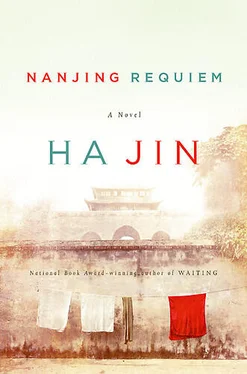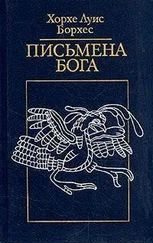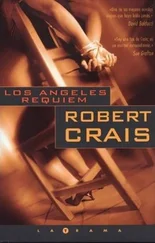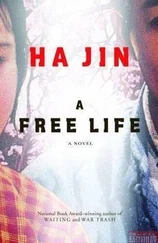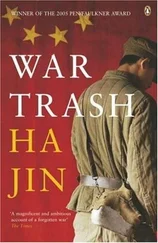Some of the men admitted to us that the war was a mistake — China was too enormous for Japan to occupy. They had all learned about this country in history textbooks — about its big apples and pears, its vast soybean fields, its rich minerals, and its pretty girls, but they had not imagined that it was such an immense land; it was also much poorer than they’d thought. Many of them had believed that once Nanjing was captured, the war would be over and they could go home; that was why they’d fought with such a blind vengeance. Everyone had wanted to finish off the enemies at the first chance, but now they could no longer envision the end of the war. One man even said that Japan should have been content with the Korean Peninsula and Manchukuo and should have stopped its aggression there. “We swallowed more than we could digest. We got too greedy,” he told us with a toothy grin. A lieutenant, a Christian, had come twice to deliver soap, towels, and biscuits for the refugees. Once we took two junior officers to the camp’s kindergarten, where toddlers were playing noisily, and Minnie told them that these children no longer had fathers. The two men murmured, “We’re sorry, really sorry for them.”
On my way back from the infirmary one afternoon, I bumped into Luhai, who came from the opposite direction, limping a little and wearing an octagonal cap, a herringbone blazer, and scuffed oxfords. He stopped, and we talked about some matters in the camp. Our staff had given tickets for free meals to most of the thirty-three hundred refugees, but Luhai still couldn’t find the leak in the porridge plant. The headman blamed the cooks for pilfering small quantities of rice at every meal, while a few of them pointed at him as the number one thief. To Luhai, every one of them seemed bent on stealing from the mouths of the poor women and undernourished children. This bad news made my blood boil again. If only there were a way to nab the crooks!
I believed that Boom Chen, the headman, must be guilty of the theft, because the man lived like a spendthrift, smoking Big Gate cigarettes and wearing a spiffy woolen jacket, which was unnecessary for the warm springtime. Whenever I bumped into this beefy swaggerer, he would greet me loudly in a tobacco-roughened voice, as if we had known each other for years, as if I ought to appreciate what he’d been doing for us. Minnie had once asked him to submit to her a thorough report on how the rations were used, but he’d claimed that he was illiterate, rolling his bovine eyes and simpering as though to insinuate that he need not receive instructions from her. Yet every once in a while I would see him lounging around reading a newspaper or a chivalric novel, so I was convinced he must be a fraud.
Luhai and I discussed a girl who had been snatched by the Japanese from the front gate three days before. Minnie had been away from campus and Holly wasn’t around when it happened either, so nobody had dared to stop the two soldiers. Later, Minnie lodged a protest with the military headquarters in Nanjing, but there was no trace of the girl, who we all knew was unlikely to come back. Minnie had admonished the whole camp time and again about loitering at the front entrance, but some of the younger girls had ignored or forgotten her admonition and went there to chitchat with new arrivals and passersby. A few even donned colorful clothes. Worse, Meiyan also went to the front entrance, with large scissors beneath her jacket. When we discovered that, we let Big Liu know immediately. He’d kept her home ever since. Two girls had already been carried off from the front gate. If anyone hung around there again, Minnie declared, she would expel them from the camp. That at last stopped them.
While Luhai and I were talking, a commotion broke out beyond the sports ground, and a crowd assembled outside the sprawling porridge plant. What was going on? We went over to have a look.
As we walked, I heard a female voice yell, “Parade her!”
“Yeah, take her through the streets,” a man cried.
“Tie a placard about her neck.”
“Cut her hair too.”
A ragged voice begged, “Sisters and brothers, please let me go! I won’t do it again.”
I recognized Sufen’s voice and quickened my steps. Then I saw the poor woman, her face pinched, standing in the middle of the crowd, her eyes watery and her hair mussed. She hung her head low like a criminal, quaking a little. Now and again she lifted her hand to wipe her dripping nose. Luhai went up to them and asked, “What’s going on?”
Tilting his pockmarked face, Boom Chen answered, “We finally caught a thief. This woman volunteered to do kitchen duty today, but she stole rice.”
“The evidence is there.” A fiftyish man pointed at a green mug on a stool, filled with the unpolished grain.
“No wonder our porridge has been so watery,” a woman said.
“We mustn’t let her get away with this!” rasped a sharp female voice.
“Denounce her publicly now, then parade her,” a small woman added, wielding her fist.
“Please, sisters and brothers!” Sufen wailed. “Don’t hurt me. I never did this before. My son’s in jail. He’s starving and begged me to bring him some grub. I have no money and no clue where to get it.”
“Liar!”
“We all know no matter how hungry we are, we must never stoop to theft,” a stout woman said.
“She must’ve stolen other stuff too.”
“Don’t just wag your tongues and waste your breath. Let’s haul her to the front yard.”
“Whoa, hold on,” Boom Chen broke in. “We shouldn’t take this matter into our own hands. Why not send her to the camp’s leaders?”
“No, we must teach her a lesson,” another female voice insisted. “We must stop the leak in the kitchen or our meals will get thinner and thinner.”
As I was about to intervene, though uncertain if I could save Sufen from their hands, Minnie appeared suddenly and said loudly, “Stop acting like a mob. You ought to be ashamed of yourselves.”
At once the crowd quieted down. Minnie continued, “This poor woman, Sufen Yan, has a fifteen-year-old son in the Model Prison. That’s a fact I know. He has begged her time and again for food. She told me that, but we have no extra rations to spare and can’t help him. Some of you here are mothers. Can you eat your two meals a day in peace while your children are starving?”
“No, I cannot,” I said.
Nobody else answered, and some dropped their eyes. Minnie went on, “Sufen, tell me, did you take the rice?”
“I did, Principal Vautrin. I am sorry.”
Minnie turned to the crowd. “She was wrong to steal from the kitchen, but you all should use your brains to think about the thin porridge. Could it be possible for her alone, with that little mug, to make so many cauldrons watery? There must be a big thief somewhere in the kitchen. We mustn’t blame it on this poor mother who just filched a morsel for her hungry child.”
Sufen started sobbing wretchedly, and people looked at one another as if to see who among them was a big-time thief. I glanced at Boom Chen, who smirked at no one in particular.
“Sufen,” Minnie continued, “I’ll let you have that mug of rice this time, but you must promise never to steal again.”
“Principal Vautrin, if I do it again, let a hundred thunderbolts strike me dead!”
“Hee hee hee hee!” somebody tittered. Then the whole crowd erupted into laughter.
A few women went up to Minnie, saying she was absolutely right — there must be a big rat in the porridge plant.
After the crowd had dispersed, Luhai suggested to us that Sufen stop doing kitchen duty in case someone might use her to muddle the investigation. Minnie agreed and decided to send her to the feces-collecting team if she still wanted to do volunteer work.
Читать дальше
